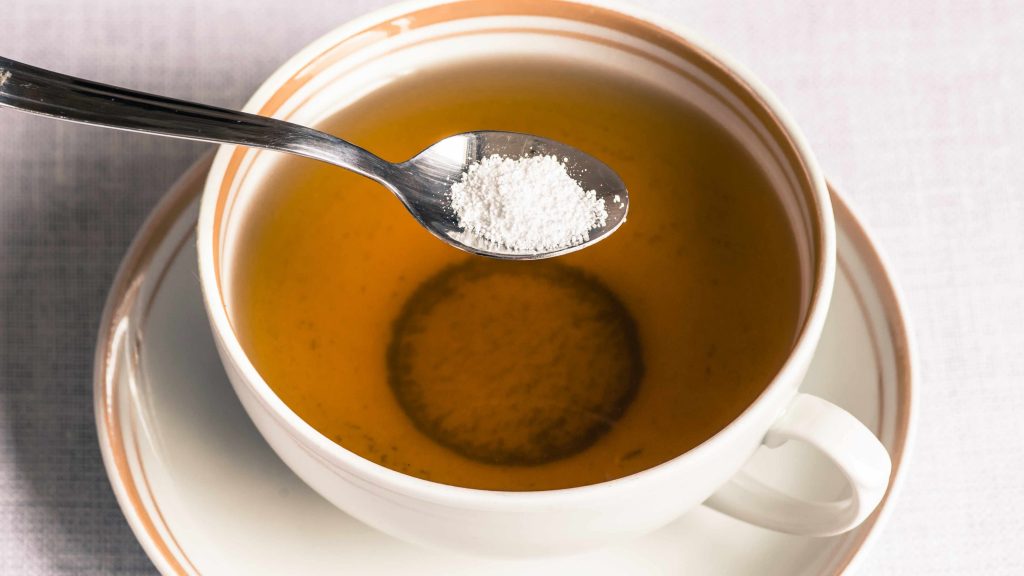
DEAR MAYO CLINIC: Are artificial sweeteners bad for your health? I want to cut down on sugar in my diet. I’ve found many products that are sugar-free, but they’re sweetened with things like Splenda, stevia and NutraSweet. Are these reasonable alternatives to sugar, or should they be avoided?
ANSWER: Artificial sweeteners available in the U.S. are regulated by the Food and Drug Administration (FDA). Extensive research on the safety of artificial sweeteners has found that using them in moderation doesn’t pose health concerns.
Artificial sweeteners are synthetic or highly refined sugar substitutes. They’re sometimes called “intense sweeteners” because they are significantly sweeter than sugar. You’ll find artificial sweeteners in many processed foods, including soft drinks, powdered drink mixes, candy, jams, jellies, dairy products and baked goods.
One of the highly touted benefits of artificial sweeteners is that they have virtually no calories. In contrast, one teaspoon of sugar has about 16 calories. That means a can of sweetened cola with 10 teaspoons of added sugar has about 160 calories. The same amount of cola sweetened with the artificial sweetener aspartame has none.
If you’re trying to lose weight or prevent weight gain, products with artificial sweeteners may be an attractive option. It’s important to note, however, that their effectiveness for long-term weight loss isn’t clear.
Another benefit is that artificial sweeteners aren’t carbohydrates. So, unlike sugar, artificial sweeteners generally do not raise blood sugar levels. If you have diabetes, talk to your primary health care provider or a dietitian before you use products with artificial sweeteners.
Over the years, there has been concern that artificial sweeteners may cause health problems, including cancer. That’s largely because of studies dating to the 1970s that linked the artificial sweetener saccharin to bladder cancer in laboratory rats. Because of that, saccharin once carried a label warning that it may be hazardous to your health. There’s no sound scientific evidence that any artificial sweeteners approved for use in the U.S. cause cancer in humans, according to the National Cancer Institute and other health agencies. Given this, the warning label for saccharin was dropped.
A study published earlier this year found that women who consistently drank two or more artificially sweetened beverages a day had a higher risk for stroke than women who drank those beverages less frequently or not at all. Although more research is needed, these findings point to the value of consuming artificially sweetened beverages in moderation.
The FDA regulates artificial sweeteners as food additives, and they must be reviewed and approved by the FDA before being made available for sale. The FDA has established an acceptable daily intake for each artificial sweetener. The acceptable daily intake is set at conservative levels. That means those amounts are likely to be higher than most people would typically consume.
Be aware, though, that it can be hard to pinpoint the exact amount of artificial sweeteners in your diet. Most companies do not share the quantities of artificial sweeteners in products because that information is considered to be part of the companies’ proprietary recipes. In addition, artificial sweeteners are in products you might not expect, such as bran cereal, so you may be consuming more artificial sweeteners daily than you realize.
If your goal is a healthier diet, instead of eating processed foods with artificial sweeteners, choose whole foods, such as fruits and vegetables. Many are naturally sweet, and they also have the benefit of containing healthy nutrients. This is in contrast to artificial sweeteners, which have no nutritional value.
If you regularly drink artificially sweetened beverages as a replacement for sweetened drinks, use that as a stepping stone to drinking more plain water. Your body needs the water, and there’s no question that it’s good for you. — Katherine Zeratsky, R.D.N., Endocrinology/Nutrition, Mayo Clinic, Rochester, Minnesota
****************************
Related Articles
- Artificial sweetener debate continues: Mayo Clinic Radio Health Minute published 3/4/19
- Added sugars: Don’t get sabotaged by sweeteners published 2/12/19
- Mayo Clinic Minute: Why drinking diet soda isn’t the best way to manage weight published 6/5/18
- Housecall: Can you handle the sugar challenge? published 4/2/18







